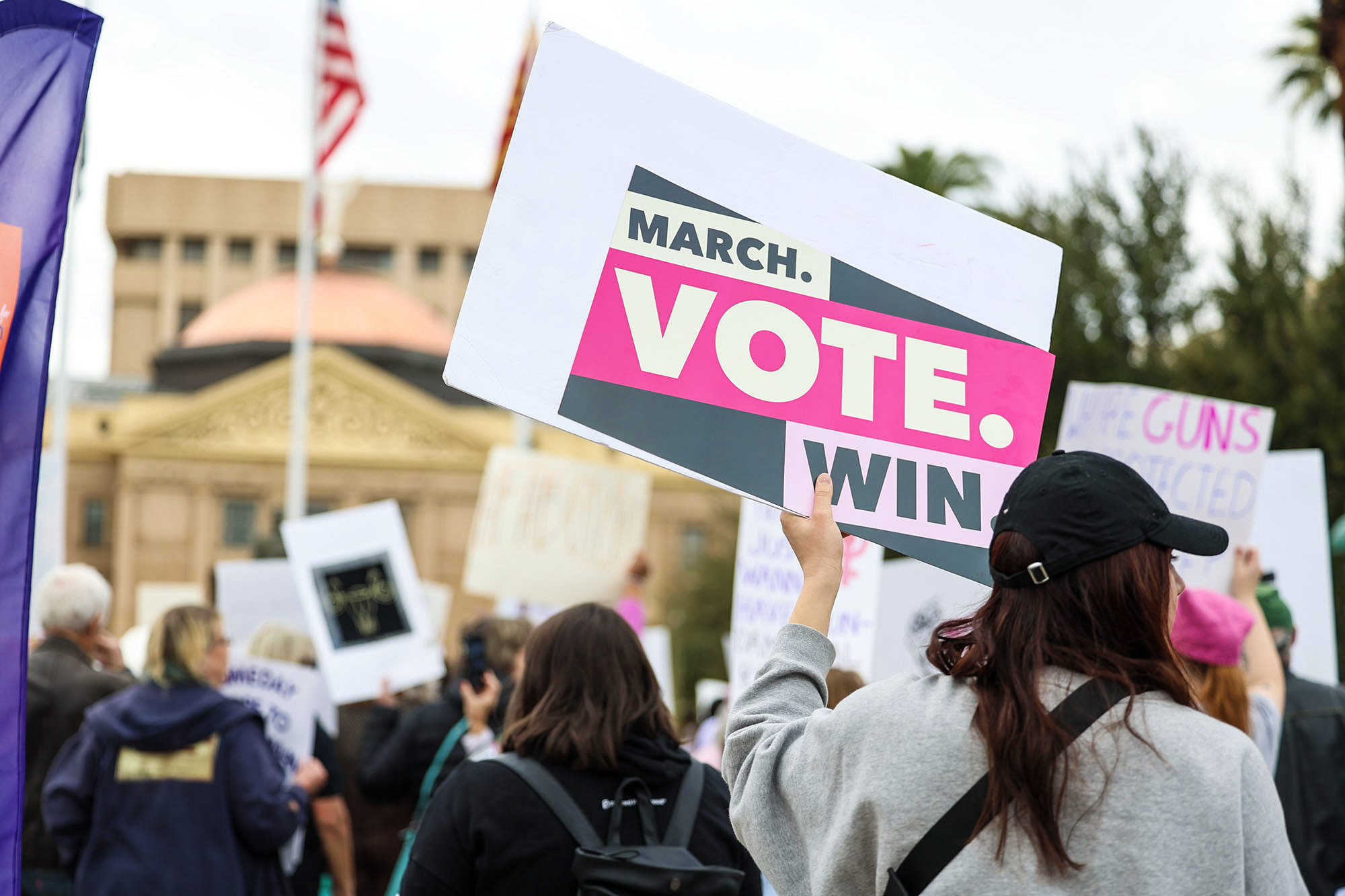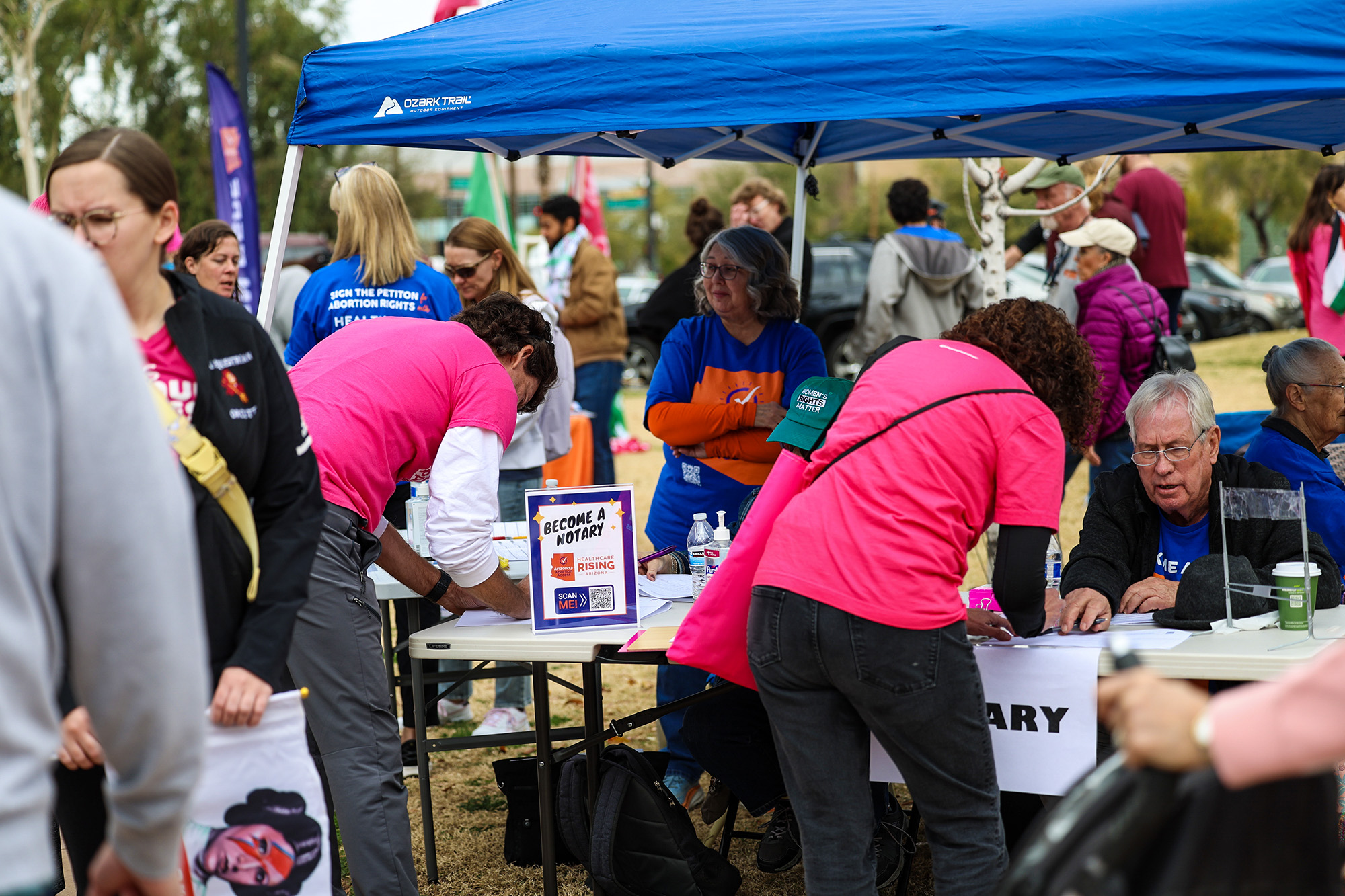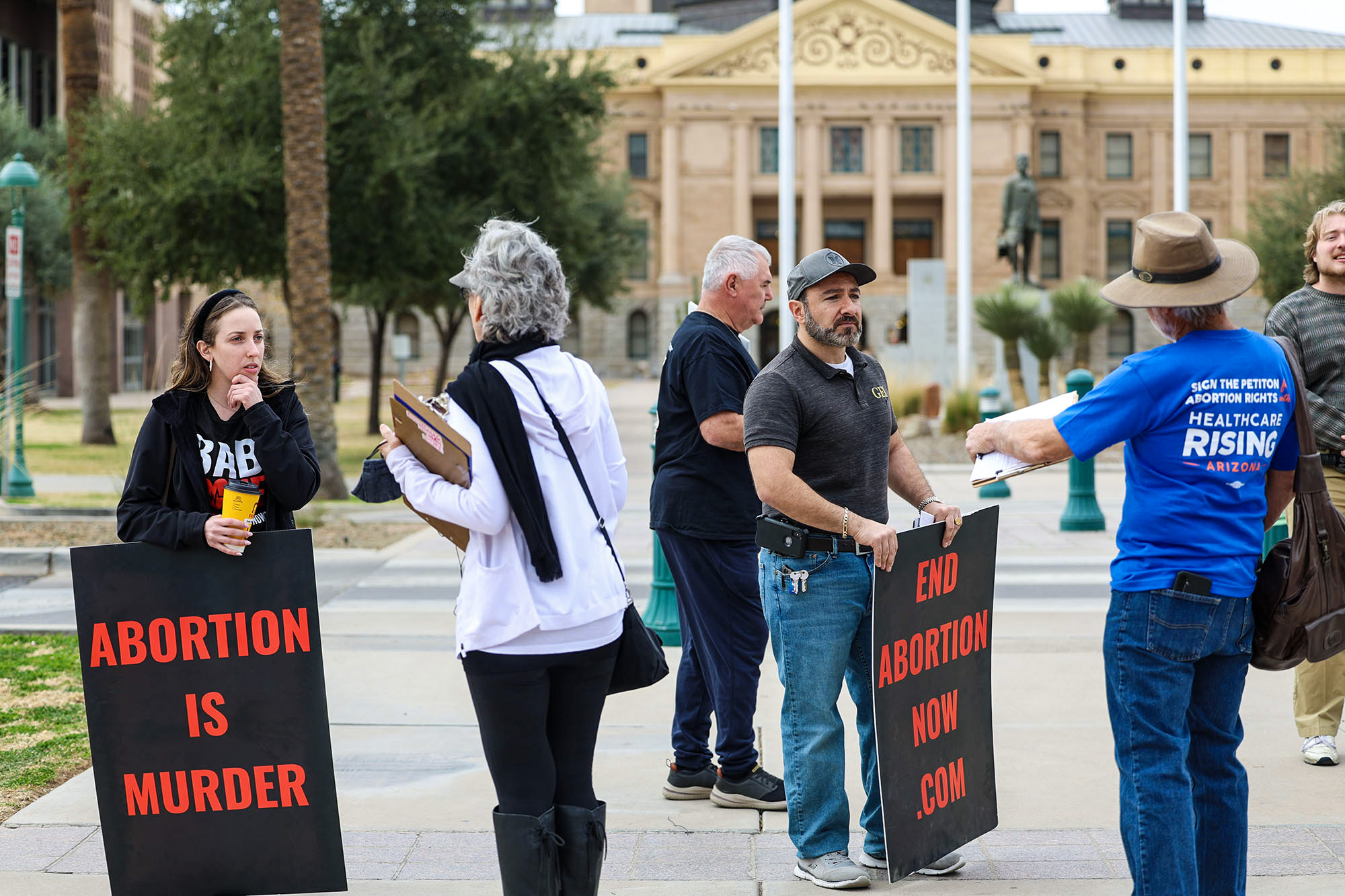Indianz.Com > News > Cronkite News: Arizona a battleground for reproductive rights
After 51 years of fighting, abortion in Arizona comes down to next 10 months
Wednesday, January 24, 2024
Cronkite News
PHOENIX – In the 51 years since the U.S. Supreme Court recognized – and then reversed – federal abortion protections, advocates and opponents have fought constantly over the boundaries of that right.
That fight continues today, but now Arizona finds itself at the forefront of the national battle.
Abortion-rights advocates are hoping to get voters to amend the state constitution this fall to enshrine abortion protections, while opponents are arguing that the proposal goes too far. And both sides are waiting to see if the Arizona Supreme Court will restore a 19-century law, still on the books, that bans almost all abortions.
Dr. Jill Gibson, chief medical officer at Planned Parenthood Arizona, said the past two years have been “a wake-up call” for abortion-rights groups.
“I think it’s been … in some ways, a recognition that we will have to fight for every single part of preserving and expanding abortion services and access to abortion,” Gibson said, since the Supreme Court’s Dobbs decision in 2022 overturned Roe v. Wade, the 1973 ruling that protected abortion nationally.




Note: This story originally appeared on Cronkite News. It is published via a Creative Commons license. Cronkite News is produced by the Walter Cronkite School of Journalism and Mass Communication at Arizona State University.
Search
Filed Under
Tags
More Headlines
Native America Calling: Honoring artists who demonstrate community spirit
‘We stand firm. We hold our ground’: Federal freeze impacts tribal gathering in nation’s capital
AUDIO: The 2025 State of Indian Nations in Washington, D.C.
RECAP: National Congress of American Indians hosts State of Indian Nations
Native America Calling: The State of Indian Nations in 2025
Ernie Stevens: Protecting tribal sovereignty in a new political era
Rhonda LeValdo and Gaylene Crouser: Not In Our Honor
AUDIO: Legislative Hearing on H.R.410, H.R.412, H.R.504 & H.R. 741
Native America Calling: Native in the Spotlight with Tatanka Means
VIDEO: ‘Thank you for your leadership’: Sen. Lisa Murkowski (R-Alaska) to Sen. Brian Schatz (D-Hawaii)
VIDEO: Senate Committee on Indian Affairs Organizational Business Meeting
Alaska Beacon: Trump administration faces lawsuit over tribal gaming facility
Native America Calling: Medicaid’s next chapter in Indian Country
H.R.43, the Alaska Native Village Municipal Lands Restoration Act
H.R.42, the Alaska Native Settlement Trust Eligibility Act
More Headlines
‘We stand firm. We hold our ground’: Federal freeze impacts tribal gathering in nation’s capital
AUDIO: The 2025 State of Indian Nations in Washington, D.C.
RECAP: National Congress of American Indians hosts State of Indian Nations
Native America Calling: The State of Indian Nations in 2025
Ernie Stevens: Protecting tribal sovereignty in a new political era
Rhonda LeValdo and Gaylene Crouser: Not In Our Honor
AUDIO: Legislative Hearing on H.R.410, H.R.412, H.R.504 & H.R. 741
Native America Calling: Native in the Spotlight with Tatanka Means
VIDEO: ‘Thank you for your leadership’: Sen. Lisa Murkowski (R-Alaska) to Sen. Brian Schatz (D-Hawaii)
VIDEO: Senate Committee on Indian Affairs Organizational Business Meeting
Alaska Beacon: Trump administration faces lawsuit over tribal gaming facility
Native America Calling: Medicaid’s next chapter in Indian Country
H.R.43, the Alaska Native Village Municipal Lands Restoration Act
H.R.42, the Alaska Native Settlement Trust Eligibility Act
More Headlines